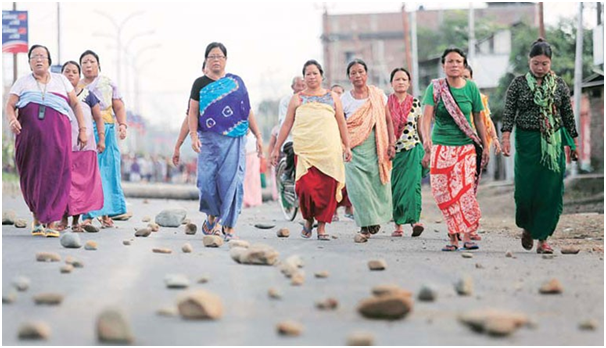A Ray of Hope for Peace in Manipur

NEW DELHI: On Wednesday government ministers and representatives from Manipur’s two main rebel groups met in Delhi, in the first of a series of peace talks.
Rebel leaders from the Kuki National Organisation (KNO) and United People’s Front (UPF) met with representatives from the central and state government.
MHA Joint Secretary Satyendra Garg said in an interview that the rebels had submitted a “wish-list” which is now being considered by the government.
A Home Ministry official said that the talks were held in “a cordial atmosphere” and that the next round would commence soon.
The talks come after almost a decade of inertia, following the signing of an ‘official’ temporary ceasefire in 2008. This new attempt at dialogue aims to break this limbo and bring an equitable and long-term settlement to what has long been one of India’s most troubled states.
However, if previous attempts are anything to go by, the dialogue is likely to be a difficult one. The rebel demands are likely to be hard for the government to accept or implement, and may have wide-reaching effects on the future of Manipur.
The KNO has long sought for the creation of an independent state for the Kuki people. While the creation of new states as a palliative for conflict in the North East has a long history, it is unclear whether the current government will be willing to accept such a proposal. It is also complicated by the integrated ethnic diversity of Manipur which makes geographic division along ethnic lines almost impossible. While the rebel demands have not been made public, it seems likely that the future of Manipuri statehood may be called into question.
Despite these challenges, the talks do represent an important step forward, signifying an ascending political will on all sides. They cast a much needed ray of hope on a region that has for too long been the scene of conflict and friction.
(Photo: (northeasttoday) After a bout of violence in Manipur)



